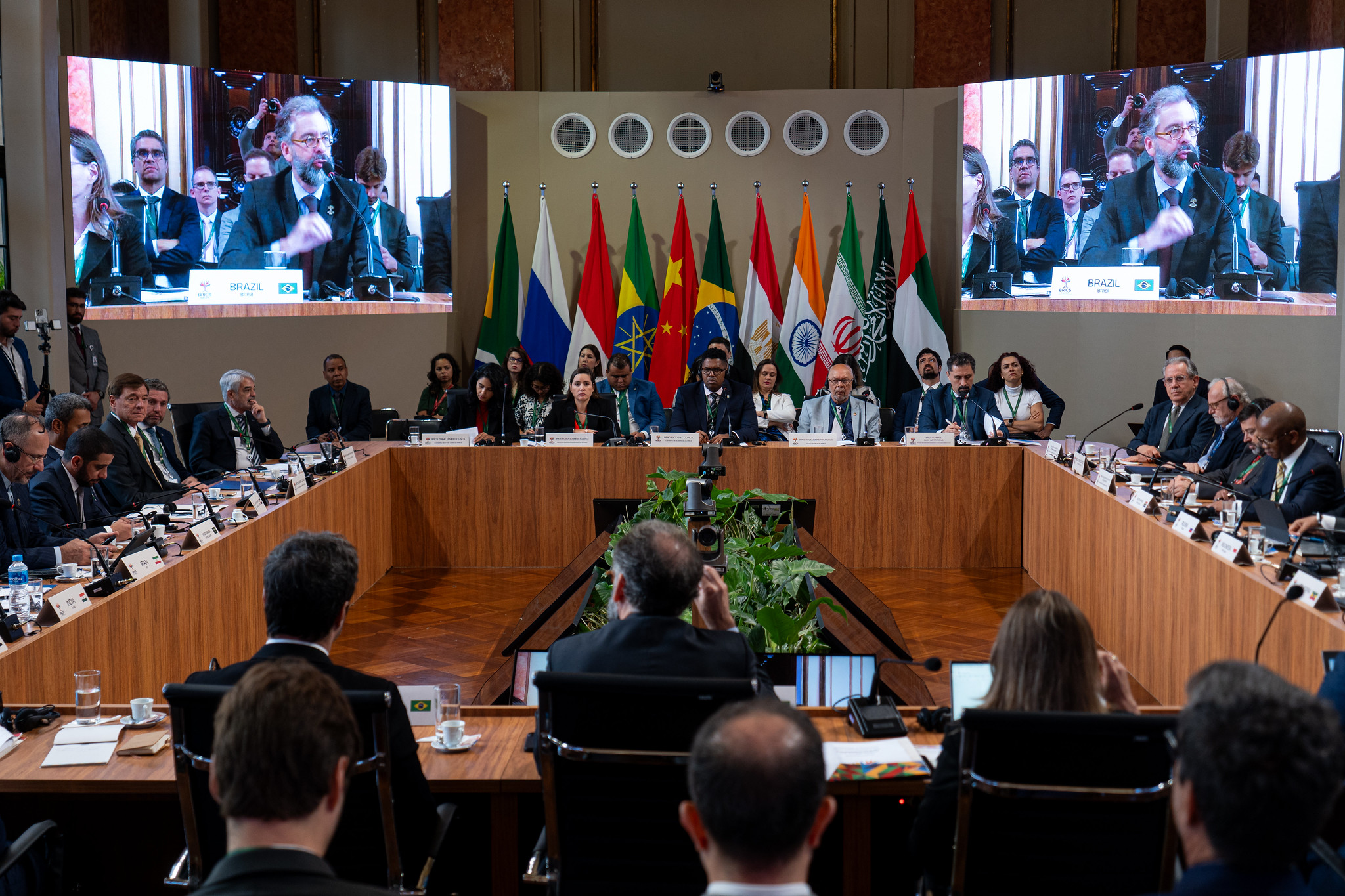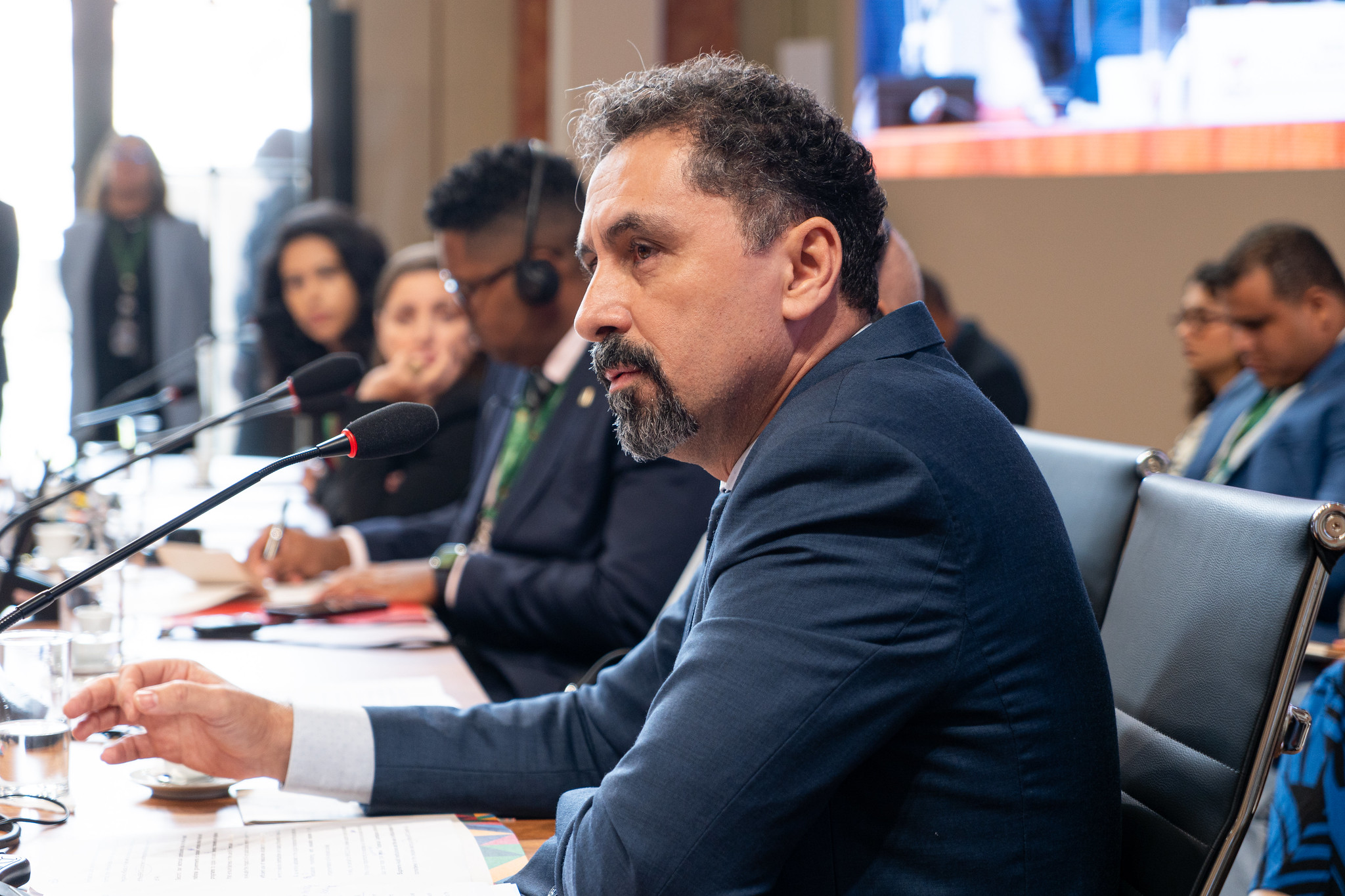TCU Represents Supreme Audit Institutions at BRICS Meeting
Por Secom

The Brazilian Federal Court of Accounts (TCU) took part in the Second BRICS Sherpas Meeting, held on April 24 at the Itamaraty Palace in Rio de Janeiro. Hugo Chudyson Freire, Head of the Department of International Relations (Serint) at the TCU, attended the meeting as a representative of the bloc's Supreme Audit Institutions (SAIs).
For the first time since the founding of BRICS, civil society representatives were formally invited to present proposals directly to the official negotiators of the member countries. The joint session between the sherpas and leaders of the "People-to-People" (P2P) pillar marks a significant shift in the bloc’s decision-making process, underscoring Brazil’s presidential commitment to inclusion and social dialogue.
The event brought together representatives from business councils, think tanks, social movements, labor unions, and local governments. Participants contributed insights on topics such as sustainable development, global governance, education, healthcare, gender equality, and the industrialization of the Global South.
In his speech, Freire highlighted the role of audit institutions in promoting transparency, accountability, and efficiency in public administration. Freire presented the document “Technical Contributions on the Role of SAIs and the Use of Artificial Intelligence”, which was approved by the bloc’s audit institutions on April 11. The text outlines concrete proposals for both SAIs and national governments, focusing on the ethical and responsible governance of AI.

Among the commitments made by the audit institutions are conducting audits on the impact of technology on public policies and exchanging best practices. The recommendations addressed to national governments include digital inclusion, fair regulation, impact assessments, and the efficient use of resources.
“Our contributions reflect what we expect from governments: the strengthening of national digital inclusion policies and programs; the development of regulatory frameworks that ensure fairness in the use of AI; the design and implementation of strategies to assess AI’s impact on public policies; the responsible and efficient use of public funds allocated to the implementation of these technologies; the broad distribution and amplification of AI’s benefits; the integration of AI into the digital transformation processes of the public sector; and the creation of monitoring and evaluation mechanisms for AI-related policies,” explained the TCU representative.
The proposals presented during the meeting will be compiled into official documents and reviewed by BRICS negotiators in the next stages of the process, with the expectation of concrete outcomes for the BRICS Leaders' Summit, scheduled for July 6–7, also in Rio de Janeiro.
